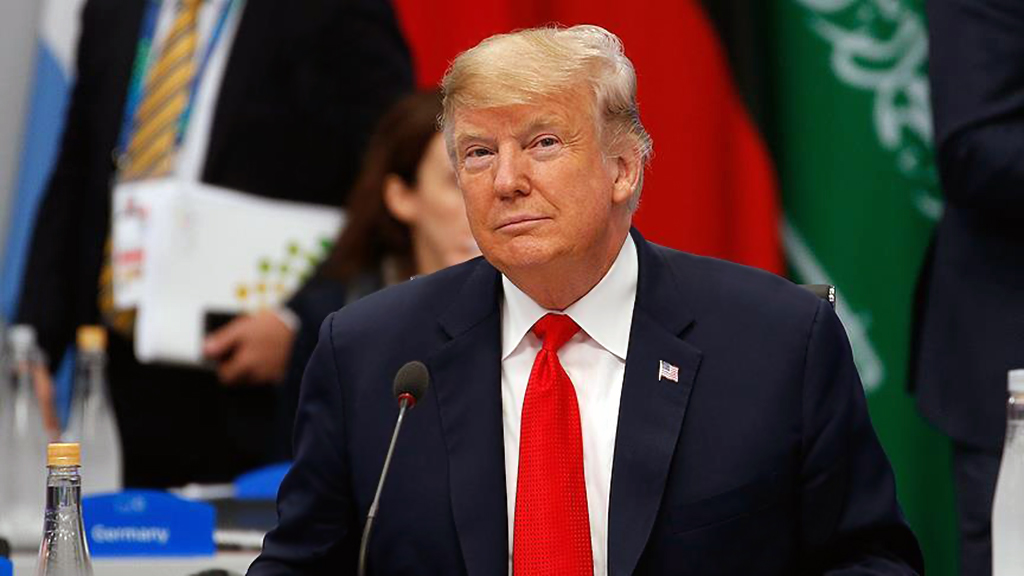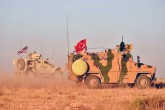U.S. President Donald Trump’s decision to withdraw troops from Syria sent shockwaves throughout the world. Clearly, Turkey’s commitment to launch a military operation into northeastern Syria changed Washington’s calculus. The announcement drew mixed responses from different stakeholders: Russia agreed that Daesh had been defeated, but noted that there was no concrete sign of U.S. withdrawal from the conflict zone.
In contrast, France claimed that the fight against Daesh was not over and pledged to keep its military personnel on the ground. Meanwhile, the U.S. media has been busy disagreeing with the White House. Senators – Democrats and Republicans alike – make the case that leaving Syria would be a grave mistake, no less significant than the Obama administration’s misguided decision to withdraw troops from Iraq.
Critics argue that Russia, Iran, the Assad regime and Daesh will fill the power vacuum that Washington will leave behind. At the same time, it remains unclear when, how and where the troop withdrawal will begin. Likewise, we do not know who will guard 28 percent of Syrian territories and what will happen to the PKK-affiliated People’s Protection Units (YPG).
Last week’s phone call between President Recep Tayyip Erdoğan and Trump took place against that backdrop and resulted in Washington’s withdrawal from the conflict zone. Turkey’s determination to address the PKK/YPG threat next door compels the U.S. to close the Syria file. One thing is increasingly clear: Washington’s current military footprint in Syria is not enough to accomplish its self-described mission. President Trump had to choose between a surge and withdrawal. He opted for the latter because his administration does not want the U.S. to be the region’s policeman. It remains to be seen how that decision will be implemented.
President Trump’s view that Washington’s Syria policy is unsustainable reflects an accurate analysis of the facts. He is right about the perils of a speedy withdrawal, such as strategic losses and a power vacuum. By working more closely with Turkey, however, the U.S. can fill the vacuum that its withdrawal will generate. That’s why the Trump administration should accept President Erdoğan’s recommendations. He must instruct his administration’s policymakers to prepare a comprehensive road map with Turkey, which could facilitate the representation of Sunni Arabs in post-conflict Syria and keep Daesh down permanently.
At the same time, Turkey and the U.S. could transform the Syrian territories under YPG control to gradually eliminate the PKK’s Syrian affiliate. Empowering non-PKK Kurds and the Free Syrian Army (FSA) could be part of that arrangement and facilitate the participation of moderate opposition and Syrian Kurds in the political transition process.
If Trump really wants to leave Syria, his administration’s only choice is to coordinate its actions in the country with Turkey.
[Daily Sabah, 21 December 2018]
In this article
- Opinion
- CENTCOM
- DAESH
- Daily Sabah
- Donald Trump
- East of the Euphrates
- Fight against DAESH
- Fight Against Terror
- France
- Free Syrian Army (FSA)
- Iraq
- Islamic Republic of Iran
- Israel
- Kurdistan Workers' Party Terrorist Organization (PKK)
- Middle East
- NATO
- NATO Ally
- Obama Administration
- Operation Euphrates Shield
- Opposition
- Peace Corridor
- People's Protection Units (YPG)
- PKK - YPG - SDF - PYD - YPJ - SDG - HBDH - HPG - KCK - PJAK - TAK - YBŞ
- Recep Tayyip Erdoğan
- Russia
- Safe Zone
- Sunni
- Syria
- Syrian Civil War
- Syrian Conflict
- Syrian Crisis
- Syrian Democratic Forces (SDF)
- Syrian National Army (SNA)
- Syrian National Coalition
- Syrian Opposition
- Syrian Refugees
- Terrorism
- Trump Administration
- Trump’s Syria Withdrawal
- Turkish Foreign Policy
- Turkish-American Relations
- Türkiye
- Türkiye-US Relations
- Türkiye-US Security Relations
- Türkiye's Foreign Policy
- Türkiye's Operation Peace Spring
- Türkiye’s Operation Olive Branch
- United States (US)
- US Media
- US President
- US Withdrawal from Syria
- US-PKK/PYD/YPG/SDF Relations
- US-Terror Relations
- Vladimir Putin



